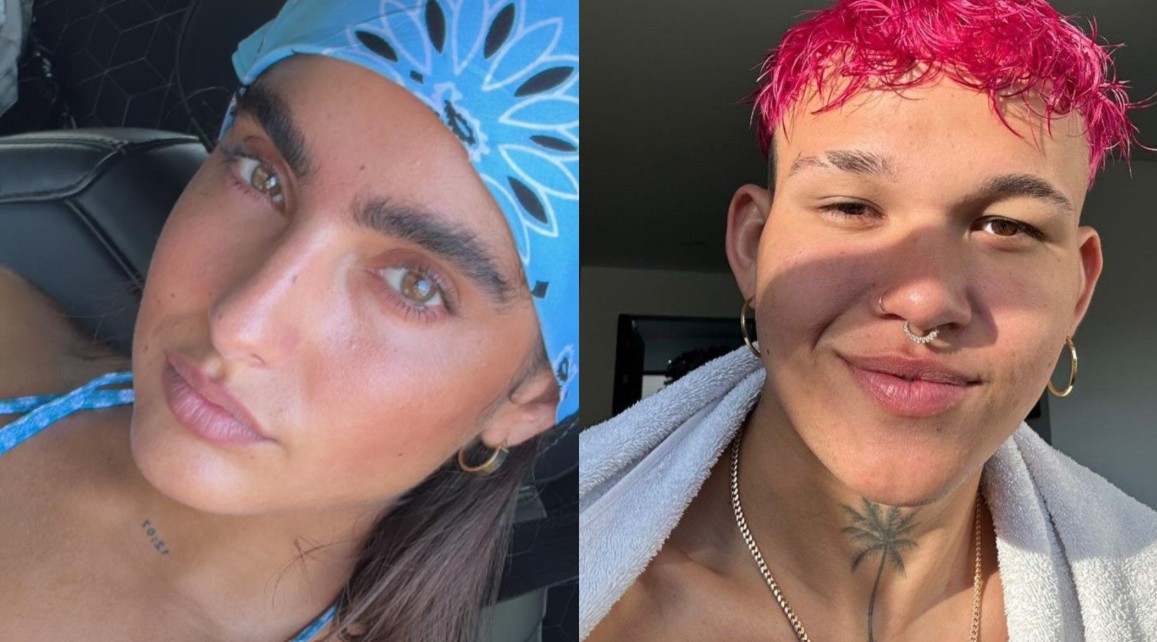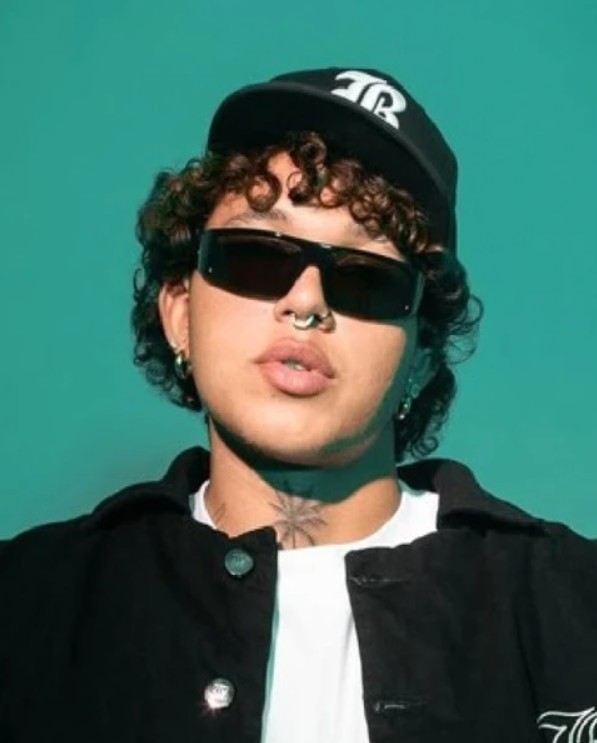Isabella Ladera y Beele video viral con Erome and Scandal
In today’s digital culture, fame can be both empowering and dangerous. With just one video or one trending post, reputations can be made or destroyed. This reality became vividly clear when a viral video featuring Isabella Ladera, a Venezuelan influencer, and Beele, a Colombian singer rising in the Latin music scene, began circulating online. The video quickly became one of the most discussed controversies in Latin America’s social media landscape, sparking debates about morality, privacy, and celebrity culture.

The incident highlighted not only the fascination people have with the private lives of public figures but also the ethical dilemmas of consuming and sharing potentially sensitive content. This article takes a closer look at who Isabella Ladera and Beele are, how the video spread, the reactions it provoked, and the larger questions it raises in today’s interconnected world.
Contents
The Viral Video Emergence
The controversy began when a short video clip allegedly showing Isabella Ladera and Beele in a private and setting started circulating online. While the exact source of the leak remains unclear, what is certain is the speed at which the content spread. Within hours, the video was being shared across platforms like Twitter (now X), TikTok, and Instagram, sparking a digital wildfire.
The full uncensored video of Isabella Ladera and Beele has drawn public interest and attention
isabella-ladera-y-beele-video-viral.mp4
Part of what made the video so explosive was the fact that it blurred the line between private affection and public scandal. Some viewers claimed the clip was harmless, portraying a consensual moment between two adults. Others argued that the video crossed boundaries of decency and professionalism, particularly because both figures relied heavily on their public image for their careers.
The virality of the video also reflects the algorithm-driven nature of social media. Platforms reward content that provokes engagement whether through likes, shares, or comments. Controversial or scandalous material often receives disproportionate attention, feeding into the cycle of virality.
Background on Isabella Ladera and Beele
Who is Isabella Ladera?
Isabella Ladera has established herself as a recognizable figure in the world of fashion, lifestyle, and social media influence. With a growing follower base, she built her brand around glamour, aspirational living, and relatability to younger audiences. Her Instagram posts often feature high-end fashion, travel experiences, and carefully curated content, reflecting both her ambition and her ability to stay relevant in a competitive influencer market.

Before the viral video surfaced, Isabella enjoyed a relatively positive reputation. Fans viewed her as a confident, stylish woman navigating the world of digital stardom. Like many influencers, she relied on her image to maintain partnerships and collaborations with brands, making her public persona vital to her career.
Who is Beele?
Beele, born in Barranquilla, Colombia, has been one of the fresh voices in reggaeton and Latin pop. His music often blends romantic lyrics with modern urban rhythms, earning him a growing international fan base. As a young artist, he represents the new wave of Colombian talent following in the footsteps of global icons like J Balvin and Maluma.

His songs connect with audiences because of their relatability and emotional tone, which sets him apart from other artists who lean heavily on aggressive beats or party anthems. By the time the video began spreading, Beele’s career was on an upward trajectory, with fans praising both his talent and his down-to-earth personality.
Public Reaction and Social Media Buzz
Almost immediately, the video split audiences into opposing camps.
Supporters: Many fans defended Isabella and Beele, emphasizing that they were entitled to private lives free from public judgment. For these supporters, the real problem was not the video itself but the invasion of privacy and the unethical sharing of content.
Critics: On the other hand, critics expressed disappointment, particularly with Beele, who is viewed as a rising role model for younger audiences. Some claimed the video undermined his professional image as an artist. Isabella also faced criticism, largely rooted in gendered double standards that often hold women to stricter moral expectations.
The social media response also manifested in memes, hashtags, and endless threads dissecting the video. TikTok creators produced reaction videos, while Twitter users debated whether the scandal was real, fabricated, or even part of a marketing strategy.
This split in public opinion demonstrated how digital culture thrives on controversy. For some, the video was entertainment; for others, it was a concerning invasion of two people’s private lives.
Media Coverage and Online Speculation
Mainstream media outlets soon picked up the story, amplifying the controversy. Headlines across Latin American digital tabloids focused on the “shocking” and “controversial” aspects of the video, often prioritizing sensationalism over nuance.
Speculation ran rampant. Some suggested the video was intentionally leaked as part of a publicity stunt to boost Beele’s visibility before a new release. Others argued it was an accidental leak by someone close to them. Neither Isabella nor Beele immediately confirmed or denied the video’s authenticity, which only fueled further debate.
The situation illustrates the blurry line between genuine scandals and manufactured publicity in entertainment culture. In an industry where attention can translate directly into fame and financial success, audiences often question whether controversies are orchestrated or accidental.
Personal Impact on Isabella Ladera and Beele
For Isabella Ladera, the viral moment posed a significant challenge to her image as a polished influencer. Social media influencers depend on brand deals and sponsorships, and associations with controversy can threaten these professional relationships. Beyond career risks, the emotional toll of having one’s private life dissected by millions can be profound.
Beele, meanwhile, faced the possibility of alienating sections of his fan base. While some dismissed the scandal as irrelevant to his music, others argued that such controversies could distract from his artistry. Musicians often struggle to separate their personal and professional identities, especially when their fan base includes impressionable teenagers and young adults.
Neither Isabella nor Beele offered lengthy public statements at first, a silence that may have been strategic to let the scandal fade. Yet the absence of an official explanation also left room for speculation, magnifying the controversy.
Broader Cultural and Ethical Implications
The viral video raises larger issues about privacy, ethics, and digital culture.
Digital Privacy: In an age where anyone with a smartphone can capture and distribute content, privacy is more fragile than ever. Public figures are especially vulnerable, but the issue affects ordinary people as well.
Consent and Ethics: Sharing videos without permission violates not only privacy but also ethical standards. Viewers who engage with leaked content contribute to the harm, even if unintentionally.
Latin American Entertainment Culture: The region’s media often thrives on scandal-driven stories. Celebrity controversies generate headlines, clicks, and discussions, reflecting a broader cultural appetite for drama.
Society’s Fascination with Scandal: Humans have long been drawn to gossip and controversy, but social media has magnified this tendency. The Isabella Ladera and Beele case reflects how quickly private matters can become public spectacles.
Lessons Learned and Public Discourse
From this controversy, several lessons emerge:
For fans and consumers: It is important to reflect on the ethical implications of consuming leaked content. Choosing not to share or engage with such material helps protect individuals’ privacy.
For public figures: Celebrities can take proactive steps to safeguard their private lives, though the responsibility should not fall solely on them. Digital security, discretion, and trusted circles are critical.
For society at large: The incident is an opportunity to reconsider how scandals are amplified and the harm caused by turning private matters into public debates. Conversations about consent, respect, and responsible digital behavior must remain at the forefront.
The Isabella Ladera and Beele viral video controversy serves as a mirror reflecting the complexities of fame in the digital age. On one hand, their popularity as public figures ensures that even minor personal moments can attract attention. On the other, the incident demonstrates how easily boundaries between private and public life can collapse when scandal strikes.
Ultimately, the video was not just about Isabella and Beele it was about the audiences who consumed, shared, and debated it. It raised pressing questions about privacy, consent, and the ethics of entertainment culture in an age where virality reigns supreme.
The lesson is clear: while curiosity may drive us to click, watch, or share, respect for human dignity must always come first. In the end, scandals fade, but the way society handles them leaves a lasting impression.
Daily News -Yailin and Tekashi Video Leak Triggers Online Debate
Whitney Wren and Christen Whitman Video Leak Drama Unfolds
Heccymar TikTok Video Viral Completo and Digital Privacy Leak
McKinley Richardson Video Leak and Public Impact
Luz Arias Video Leak and the Response It Sparked
Chris Sails Video Leak and Its Consequences
Flor Peña Video Viral and the Impact on Celebrity Culture

